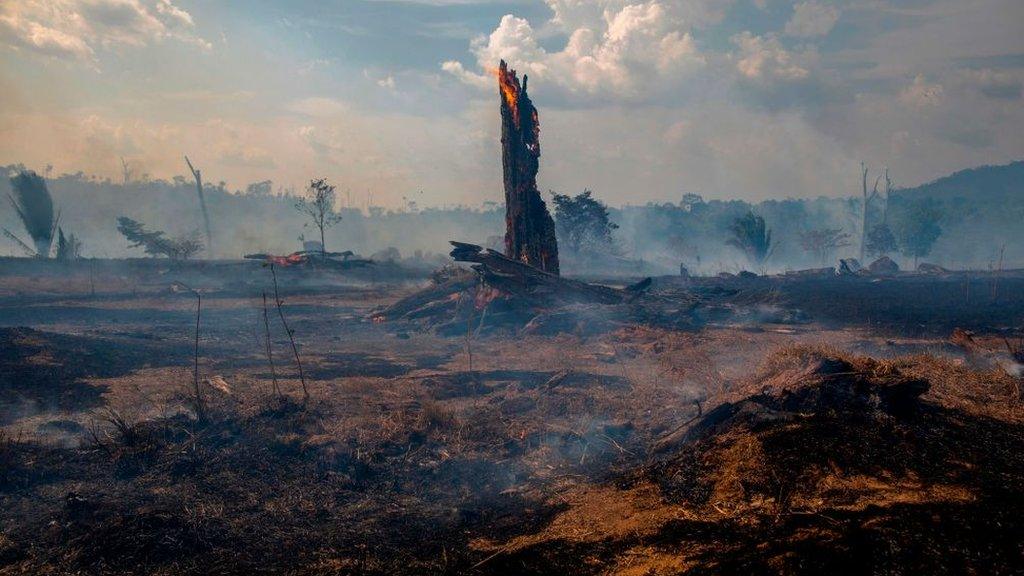Amazon: Will Aldi, Sainsbury's, and the Co-Op stop buying from Brazil?
- Published
- comments
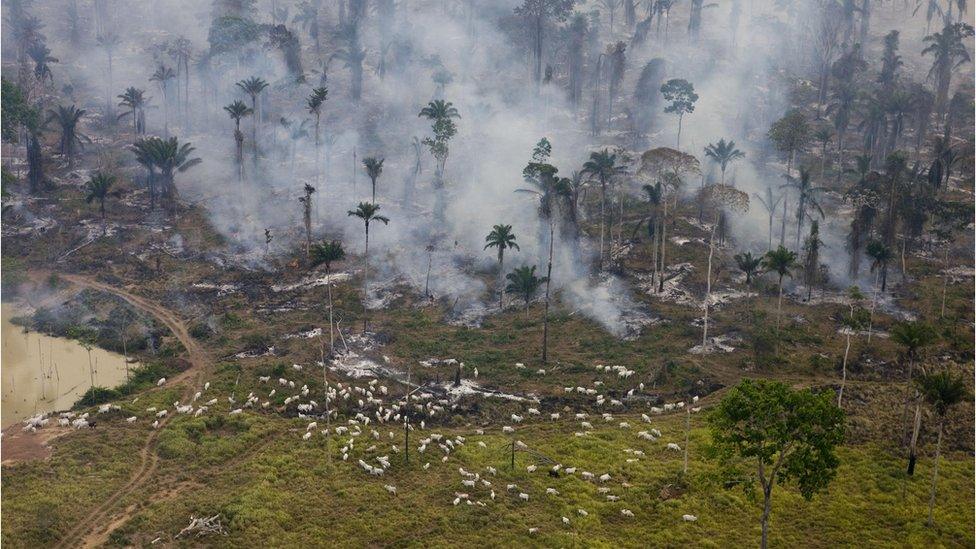
Massive fires have destroyed large parts of the Amazon in recent years
Nearly 40 UK food companies, including Sainsbury's, Aldi, Greggs, and the Co-Op, have threatened to stop sourcing products from Brazil due to land reforms being proposed by the country's government.
These businesses say they are worried a change in the law will lead to greater and faster deforestation of the Amazon rainforest.
Deforestation is the deliberate destruction of rainforest to make way for areas for human use, such as farmland for cattle, crops, or wood to be used for building.
The bill could put public land up for sale, which supporters say this is a good thing as it would help small-scale farmers to clarify who owns land. But others argue it could allow illegal occupants to buy it.
The Brazilian government has been asked for its response but so far hasn't said anything.
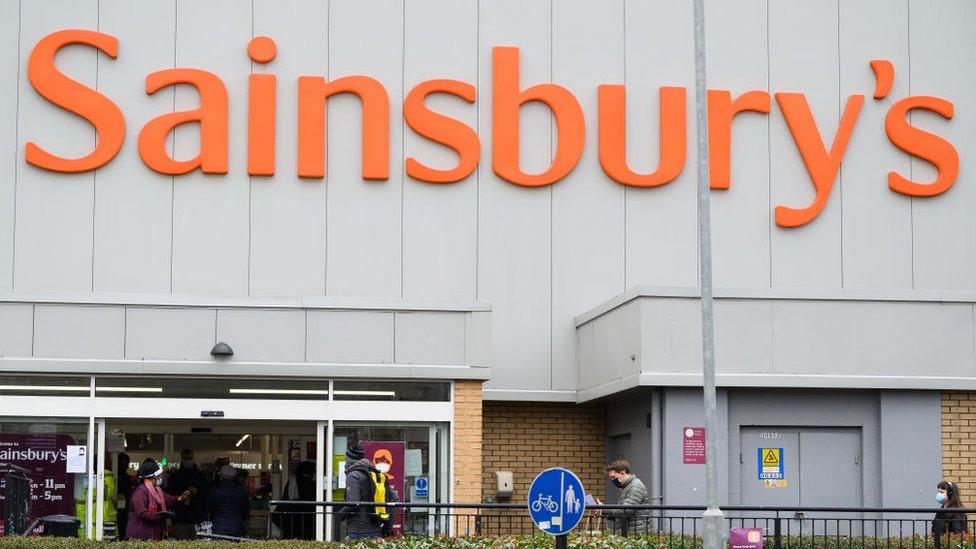
Earlier this year the BBC found that parts of Brazil's Amazon rainforest as large as 1,000 football pitches were being illegally sold on Facebook.
This land included national forests and land reserved for indigenous peoples.
Why is the Amazon such a big deal?
Last year a report said deforestation of the Amazon rainforest was at a 12 year high.
The Amazon is a vital carbon store that slows down the pace of global warming, but scientists say it has suffered losses at an accelerated rate since Jair Bolsonaro took over as Brazilian president in January 2019.
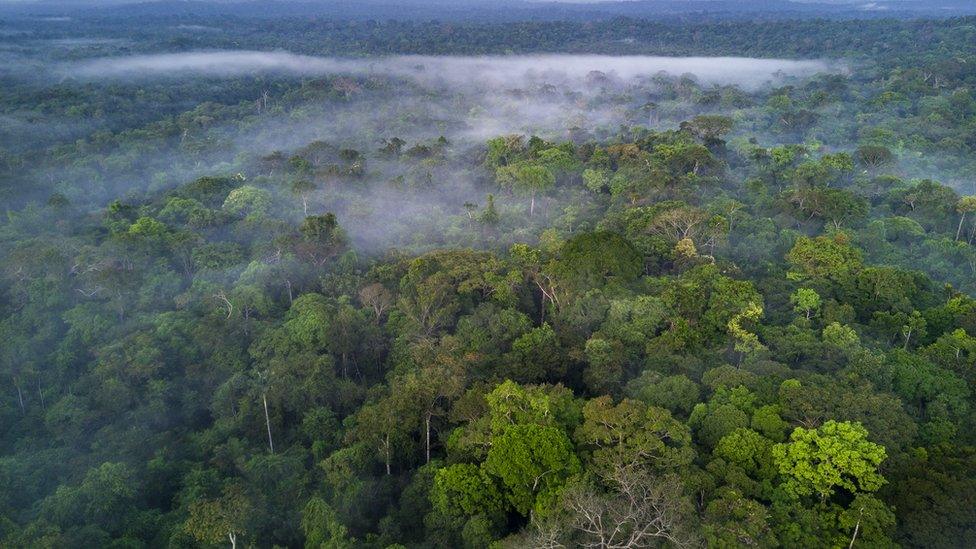
The Amazon rainforest is home to one in 10 known species on Earth
He has encouraged agriculture and mining activities in the world's largest rainforest, which is home to about three million species of plants and animals, and one million indigenous people.
The companies say they "consider the Amazon as a vital part of the earth system that's essential to the security of our planet, as well as being a critical part of a prosperous future for Brazilians and all of society."
They have signed an open letter calling on Brazil's lawmakers to reject a bill when they have to vote on it later this week.
Why are the food companies concerned?
Rainforests are critical to fighting against the effects of climate change, as they store large amounts of carbon.
Under the leadership of President Jair Bolsanaro, the level of deforestation in the Amazon is reported as being the highest since 2008.
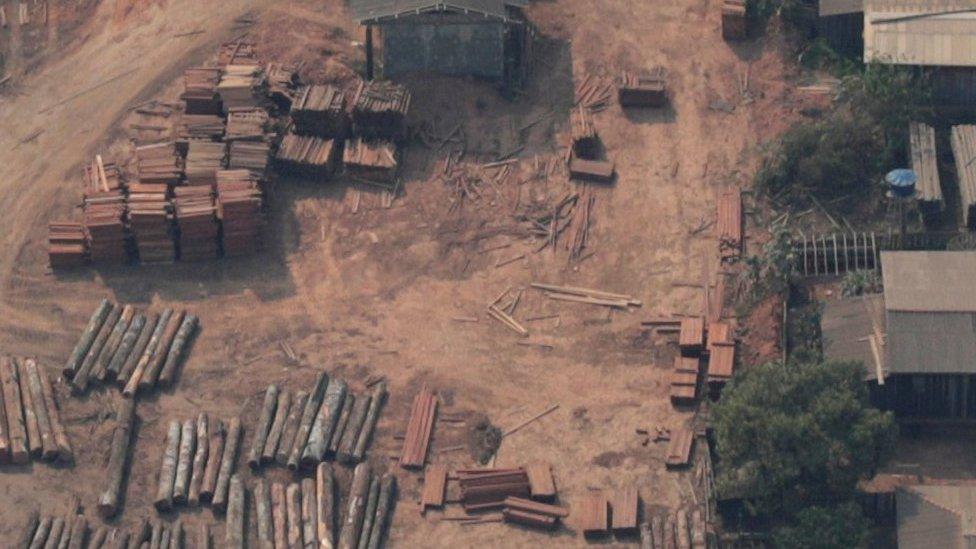
An aerial view of logs illegally cut from the Amazon rainforest
This year alone around 430,000 acres of the Amazon have been logged or burned, according to the Monitoring of the Andean Amazon Project.
The majority of land is cleared either to graze cattle that will become beef that is shipped abroad, or to grow soy, which goes in to animal feed around the world.
At a summit in April hosted by US President Joe Biden, Mr Bolsanaro declared that Brazil would end illegal logging - but the food companies say the proposed new law would be in conflict with this aim.
What could happen next?
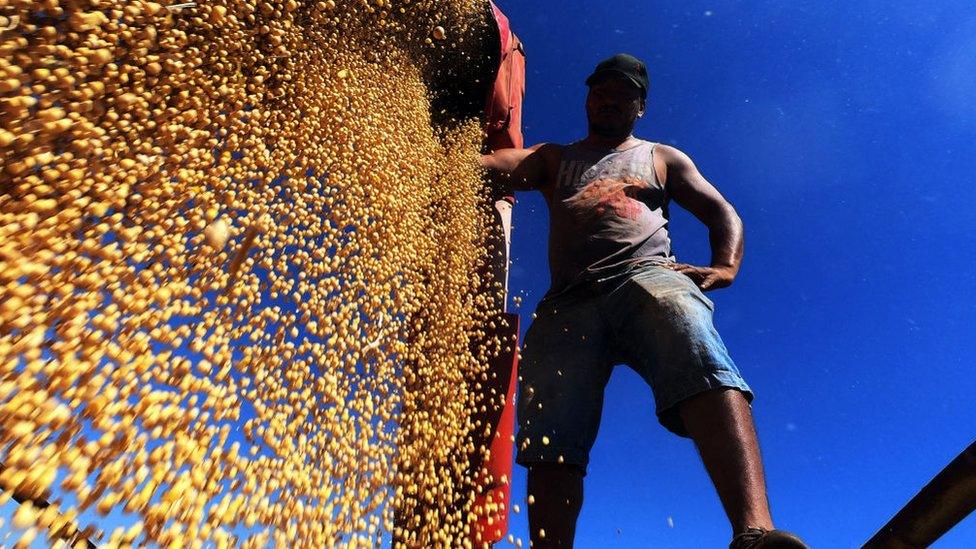
Brazil is one of the biggest producers of soy beans
These food companies say the protections that are currently in place to protect land are the reason their organisations had "trust" in Brazilian producers and that the "door remains open to work with Brazilian partners" to develop sustainable land management practice in Brazil.
But they say if the law changes in a way that threatens existing protections, they will have "no choice but to reconsider our support" for using Brazil as somewhere to source its products and raw ingredients.
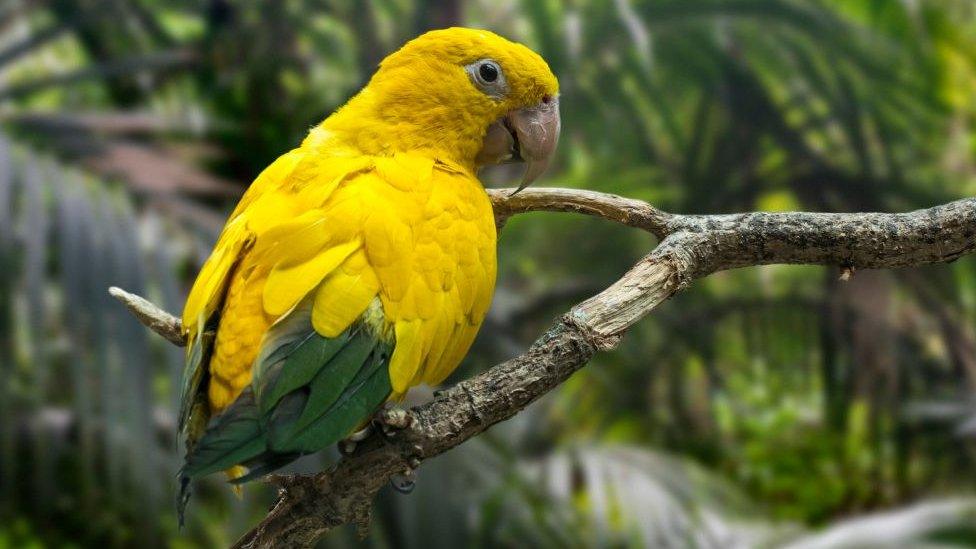
There are more than three million species living in the rainforest, which is made up of more than 2,500 tree species
Mike Barrett, executive director of science and conservation at WWF-UK, said: "If passed, this vote in the Brazilian Congress will fuel further destruction and place greater risk on the lives of the people and wildlife who call it home.
"As global efforts to protect the Amazon threaten to be undermined, it's encouraging to see major businesses sounding the alarm."
Similar changes in the law were also proposed law year, but were withdrawn after more than 40 organisations made the same threat over supply chain sourcing.
- Published26 August 2019
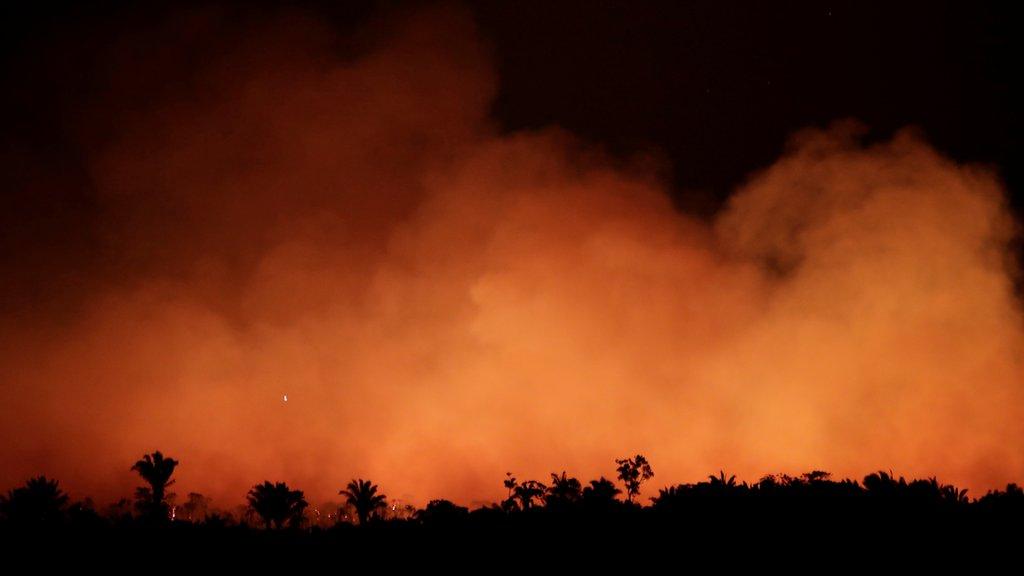
- Published20 November 2019
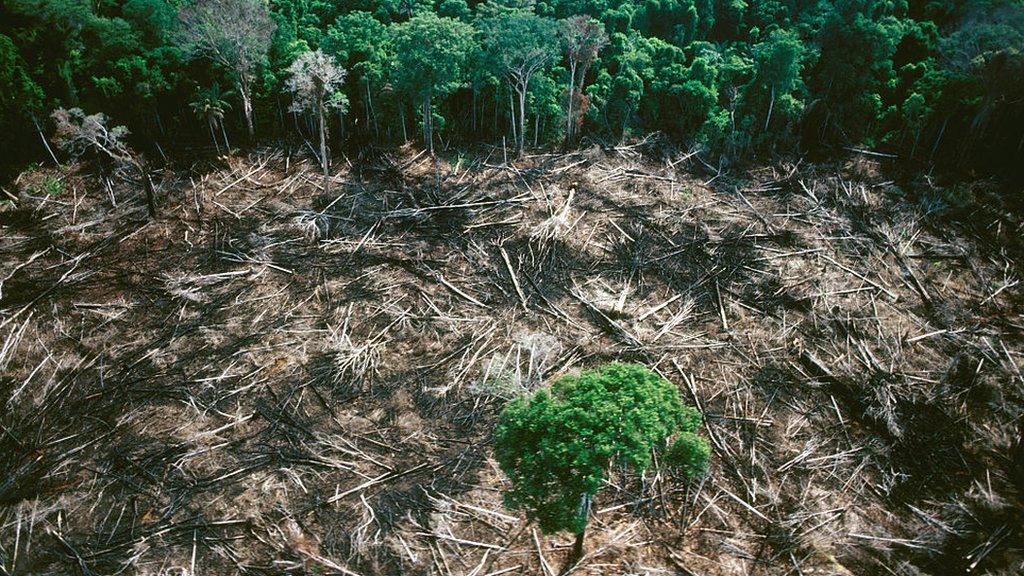
- Published31 August 2019
